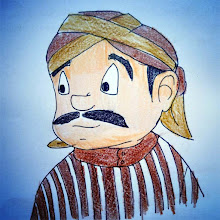Javanese is one of the unique languages in the world which is currently spoken by 82 million people in Indonesia. A uniqueness specifically lies in the degree of politeness used when speaking to different people.
It has three levels of expression to address people of different ages. Ngoko, being the first, is probably the widest in use as it enables everyone to talk freely without consideration of politeness. Ngoko is more casual than the other two levels and used by friends or colleagues in informal context.
Different levels of politeness
For instance, "Awakmu njaluk opo?" that means "What you do want?". It is spoken to peers that indicates the most informal way of speaking as none of the communicators are older who deserve veneration. Both speakers feel confident and relaxed to express themselves.
In the second level, called krama madya, the sentence will say, "Sampean nedi nopo?" that contains the same message. It is normally said to those older but with moderate authority. I may be using this level of krama when talking to my aunts or uncles.
The last is krama inggil. As the name suggests, inggil which means high, this level signifies the highest degree of civility. In today's life, not too many people understand and use this type of krama. The younger generation has seemed unfamiliar with specific words of krama inggil.
An example will be, "Panjenengan ngersaaken menopo?" that also offers people what they want to have. Perhaps something to drink or to eat. The application may occur when students talk to their teachers or when kids talk to their parents at home. People of religious positions or of social authority also receive this level of politeness.
I will be delving into more details in the following posts to present more examples as well as the structure of Javanese sentences. Enjoy!
I have come to believe that indigenous language, including Javanese, will survive the test of time as people today continue speaking in it either in vilagges or apartment in large cities.


















0 comments:
Post a Comment